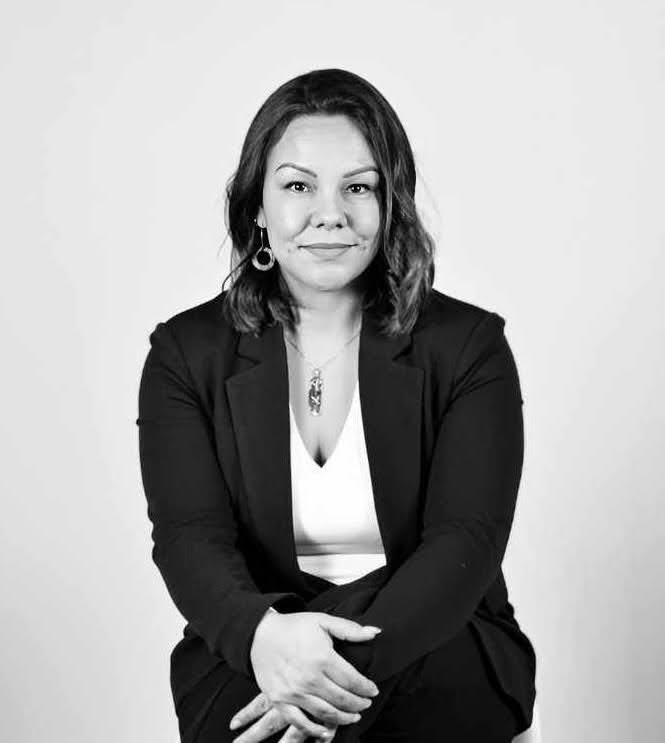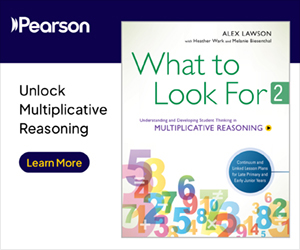Laurentian University Assistant Professor, School of Indigenous Relations, Sharlene Webkamigad (Anishinaabe-Kwe, Wiikwemkoong Unceded Territory) is helping lead a transformative community-led research initiative focused on improving brain health assessment for Indigenous Peoples across Canada and internationally.

In addition to being a faculty in Laurentian's School of Indigenous Relations, Sharlene Webkamigad is a member of the Executive Committee for the Maamwizing Indigenous Research Institute. She is also a cross-appointed Assistant Professor at NOSM University. (Photo credit: Linda Roy)
The six-year project, awarded $24 million in funding by the New Frontiers in Research Fund Transformation Stream, will develop a culturally grounded bundle of dementia assessment tools that are safe, trauma-informed, and reflective of Indigenous values, language, and knowledge systems. Webkamigad, is co-investigating key components of the initiative, including engagement with Indigenous Peoples with lived and living experience of dementia and their caregiving communities as well as contributing to healthcare preparedness and training.
To ensure that the project is culturally informed and based in community, key partners include Indigenous co-researchers from community-led organizations such as Maamwesying North Shore Community Health Services, Dilico Anishinabek Family Care, Manotsaywin Nanotoojig Inc, Métis Nation of Alberta, Six Nations of the Grand River and the Two-Spirit Program at the Community-Based Research Centre. Researchers from Lakehead University, Queen's University, University of Calgary, University of Saskatchewan and Western University, as well as KITE Research Institute at University Health Network will also support this work.
"This project brings so many of us with different talents together. It's a collective, it's about community, it's mentorship it's heart work . My role is about listening, building, and creating space for community members to guide this work and shape how healthcare can better serve them," said Webkamigad who elaborated that community perspective on holistic brain health may include discussions of elements typically required for a diagnosis of dementia, such as cognition, depression, and other potential components such as quality of life.
For Webkamigad, whose Ojibwe and Odawa roots help guide her, the collaborative efforts of this project are well represented by the metaphor of a black ash basket; each strip weaved together to make a stronger whole. "Each person brings their own gifts to this project. We all share the responsibility to work on this equally. That's what true interdisciplinary collaboration means to me."
Before pursuing her MA in Interdisciplinary Health and PhD in Rural and Northern Health, Webkamigad was a graduate of Laurentian's School of Nursing (BScN). With more than fifteen years experience in Indigenous health care as a Registered Nurse, she recognizes National Nursing Week, an annual initiative centered around International Nurses Day (May 12th), however, proudly celebrates Indigenous Nurses Day on April 10th, a date that honours Charlotte Edith Anderson Monture, a Kanien'kehà:ka woman who, despite barriers placed on Indigenous women such as the Indian Act, was the first Indigenous registered nurse in Canada in 1914. We honour the health care contributions and achievements of all First Nations, Inuit, and Métis nurses, educators, and students in Canada.
Webkamigad's journey into research began during her BScN studies when she worked as a research assistant for a diabetes-related project, in her home community of Wiikwemkoong. "I saw firsthand how Indigenous voices are often overlooked in mainstream health models," she said. "While healthcare providers can continue to educate people on health-related topics, it's what they face in the real world that impacts how they are using the information we share with them It comes down to social determinants of health. The health needs of Indigenous Peoples are unique, and health outcomes derived from colonialism, must be accounted for." Her journey in research continues to evolve as does her curiosity, and Webkamigad is motivated to provide a healthcare environment that reflects the needs and priorities of the most crucial people in Indigenous communities: older adults and Elders.
When it comes to dementia, an umbrella term for several diseases that affect memory, thinking, and the ability to perform daily activities, Alzheimer's disease is most common, accounting for approximately 60 to 70 per cent of cases, according to the Public Health Agency of Canada.
The Landmark Study released by the Alzheimer Society of Canada in 2024 estimated that by 2050, the number of people with Indigenous ancestry living with Alzheimer's disease will increase by 273 per cent. This is significantly higher than the 187 per cent increase the report estimates for the overall population in Canada. "The health models we're building are meant to last because they're built by those who've lived the experience. This isn't about applying Western models it's about honouring Indigenous beliefs in developing meaningful ones. That's how we reclaim brain health for future generations of Indigenous Peoples," said Webkamigad.
As an early career researcher who benefited from mentorship programs and financial grants from the Wikwemikong Board of Education, Canadian Institutes of Health Research Institute of Indigenous Peoples Health, the Canadian Consortium on Neurodegeneration in Aging, Indspire, the Canadian Nurses Foundation and the Canadian Indigenous Nurses Association, Webkamigad is passionate about mentorship and capacity-building within Indigenous communities and academic settings. Through this project and others, she is eager to co-develop mentorship pathways for graduate students, emerging scholars, and community co-researchers, similar to the opportunities she had in her journey.
"Mentorship in research isn't only found in University settings," she described. "It's in conversation with an Elder. It's in stories shared around a kitchen table The teachings I've received from my grandparents, from my mother, from my late step-father, from my aunties and uncles, from community, from mentors, have shaped me . I carry those teachings forward."
While her PhD dissertation, which she successfully defended earlier this month, focused on older First Nation adults and Elders living with multiple chronic conditions, and community-level supports during the COVID-19 pandemic, her overarching research interests are on advancing access to culturally safer health care for Indigenous peoples, specifically older adults, in rural and northern landscapes.
When it comes to the timeline of this project, various milestones have been determined:
- Year one: Build relationships, community protocols, ceremony
- Year two: Components of a holistic brain health assessment
- Year three: Clarity on constructs from community perspectives
- Year four: Piloting and content validity for assessments
- Year five: Reliability and validity testing in community sites
- Year six: Returning the bundle and sharing it
By centering Indigenous knowledge and lived experience, this project is not only advancing brain health and dementia care it's reshaping what Indigenous health research can and should be.













